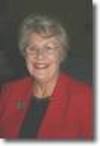 Dinah Williams graciously agreed to an “exit interview” with BayBuzz as she steps out of council life.
Dinah Williams graciously agreed to an “exit interview” with BayBuzz as she steps out of council life.
After four terms on the HDC representing Havelock North, and two on the Regional Council, she has a few regrets. Who wouldn’t? But far outweighing those is the pride she can take from eighteen years of dedicated public service at the council level. To say nothing of a myriad of other positive roles in the community.
Her leadership was already evident back — we won’t say how far back — at Samuel Marsden Collegiate in Wellington, where she was House Captain and President of the United Nations Group.
Over afternoon tea, Dinah reflected on the issues she has addressed as a councillor, She wondered aloud about whether perhaps too much time and attention was devoted to the big “glamour projects,” as she called them, and not enough to the day-to-day basic services ratepayers expect … and pay for.
In that vein, she termed Splash Planet “our flaming albatross,” a money-loser that the HDC never should have backed (Dinah opposed it from the onset).
Asked what part of her council experience most satisfied her, Dinah said it was her role in chairing the Hearings Committee, where she believes politics was set aside for strict criteria in judging requests under the Resource Management Act.
Dinah was the key mover behind establishment of the Hastings Safer Community Council, a citizen-driven effort that instigated citizen patrols, crime prevention and other safety programs.
She continues to worry about “tremendous dysfunction in the country,” referring to poverty and related issues of family violence and under-achievement. For years she has believed that a root problem is “too many children being born into unfortunate circumstances.” She says, “With the latter I know I am treading in a very sensitive area but, in my opinion, it is the key to solving many of society’s most serious problems.”
This is a deep conviction, which causes her to cite poverty as the highest priority issue … “more bothersome than the environment,” she says. At the same time, she notes approvingly that “people in New Zealand are beginning to put a line in the sand on environmental issues, and it’s happening faster than I would have expected.”
I asked Dinah for some words of advice for councillors who might find themselves newly elected on October 13. “Don’t try to be a jack-of-all-trades,” she emphasized. “Focus on two or three issues where you really want to make a difference.”
Another suggestion: “Make yourself aware of staff that can help.” Dinah pointedly stressed her admiration for the HDC staff over the years; some she counts as close friends. She did observe there has been “some dilution” of the strong relationship that is needed between staff and councillors, which she believes must include “healthy give and take” as a catalyst for cutting through the superficial.
[I recalled that earlier she had said to me, speaking more philosophically, that “superficial conversations are a waste of time. Life is too short. We must make an attempt to establish genuine connections.” It’s clear, both from listening to her and reading a selection of what she has written over the years, that Dinah does look more deeply into things, including her connection to the community. She speaks fervently of a “tremendous spirituality” resident in Havelock North that has attracted many individuals and groups with deeper convictions and connectedness over four or five generations.]
Finally, she urges councillors to “do everything you can to interact with constituents, even though it can sometimes drive you to drink!”
As a skillful and admitted “political animal,” Dinah has always kept her ear to the ground, but confesses that the intensity of emotion that some constituents invest in their issues and concerns sometimes astonishes her. “I wish my constituents would chill out a bit,” she says.
This isn’t a new attitude of hers. Writing in the Village Press back in 1995 she said:
“I have found myself acting as a facilitator in a number of situations recently and have been concerned at the lack of tolerance and understanding. Too often, people adopt fixed positions and act defensively which makes dispute resolution extremely difficult. I feel strongly that we must be better neighbors and, in a constantly changing environment, ensure our hearts and minds remain open and flexible.”
Good advice then … good advice now. Excellent parting thoughts.
Tom
